Featured In
Here’s a glimpse into my content and appearances showcased across industry publications and partner platforms. Click on any image below to access it.
(more…)Less talk. More experiments, please.
Why innovation in events isn’t possible without behavioral science
Two weeks ago I went to Nudgestock 2022, one of my favorite events, which happens to be the behavioral science festival. Obviously, I enjoy the content, but it is also a source of inspiration for me when I apply that to the events business. I’m not sure to what extent the Nudgestock team is intentionally applying BS when planning the event, but they’re not afraid to experiment – and I’d say that’s the biggest insight – and the biggest challenge – for the event community.
Despite all the tech progress, events are in desperate need of innovation. But innovation can’t be achieved without trying new and unconventional methods, without testing something no one else has tested; without going against the common logic. Here’s the point: common logic will lead you to the same ideas and results that everyone else has, so you won’t progress much. Behavioral science shows us that people think mostly irrationally and exploring this path will help us find unexpected ways to achieve our goals. It takes two things: a willingness to learn more about human behavior and a willingness to experiment.
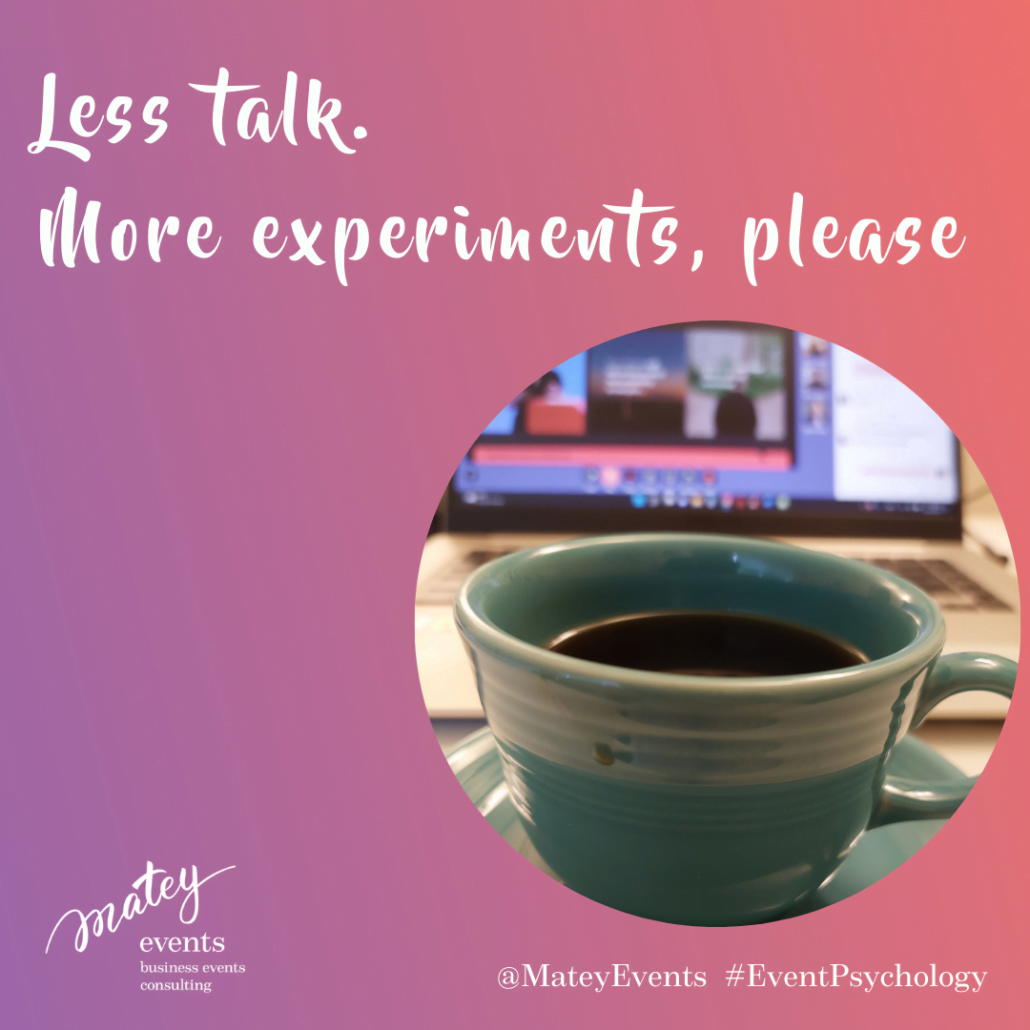
3 science-backed tips for effective event networking
There are notably a lot more in-person events this season, and I’ve been seeing and getting involved in a lot of discussions about how to make event networking more effective. Not that it’s a new question for the event community, but as you can imagine we are in a completely different world right now with pandemic and other issues taking their toll.
So I figured this is a good moment to share a few science-based tips for my fellow #eventprofs attending events like IMEX Frankfurt for the first time in three years, or really for anyone who feels they are stuck with ideas on how this can work.

Why being imperfect can make your events thrive
I realize I’m going against the tide here, but instead of wishing you success for the new year, I would like to see you strive for imperfection. Here is why being imperfect and having fails can make your events thrive.
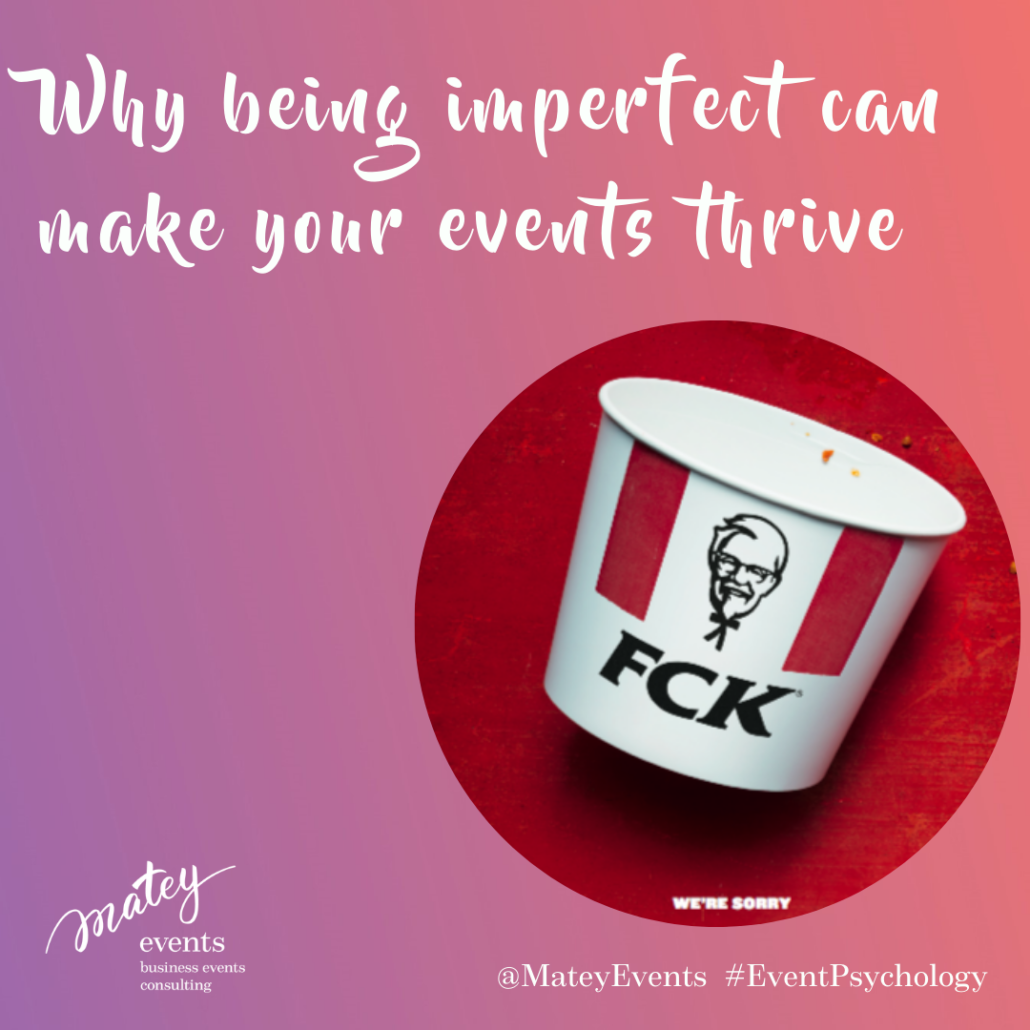
How to eliminate uncertainty and make the future of events bright(er)
Recently, I chatted all things future of events with Irina Graf of the MICE blog and in particular, we talked about some of the buzzwords circulating in the industry. It is amusing to me that with years of discussion around topics such as ‘community’ or ‘365-engagement‘, they only emerged recently as mainstream concepts in events. At the same time, it’s not surprising since human psychology is at play here. It made me reflect on how quickly we adopt new concepts and how it relates to the situation the events community has been facing for the past two years.

Event Analytics: How Can You Measure Emotions?
Emotion recognition and measurement tech is at an incredible level of development these days. All the big players in almost every industry, from social platforms to car manufacturers to space exploration, are researching and analyzing how they can know what the customer feels, what emotions affect their decisions or behavior. We can take this as a sign that those businesses that place customer emotions at the top of their priorities will be the most successful.
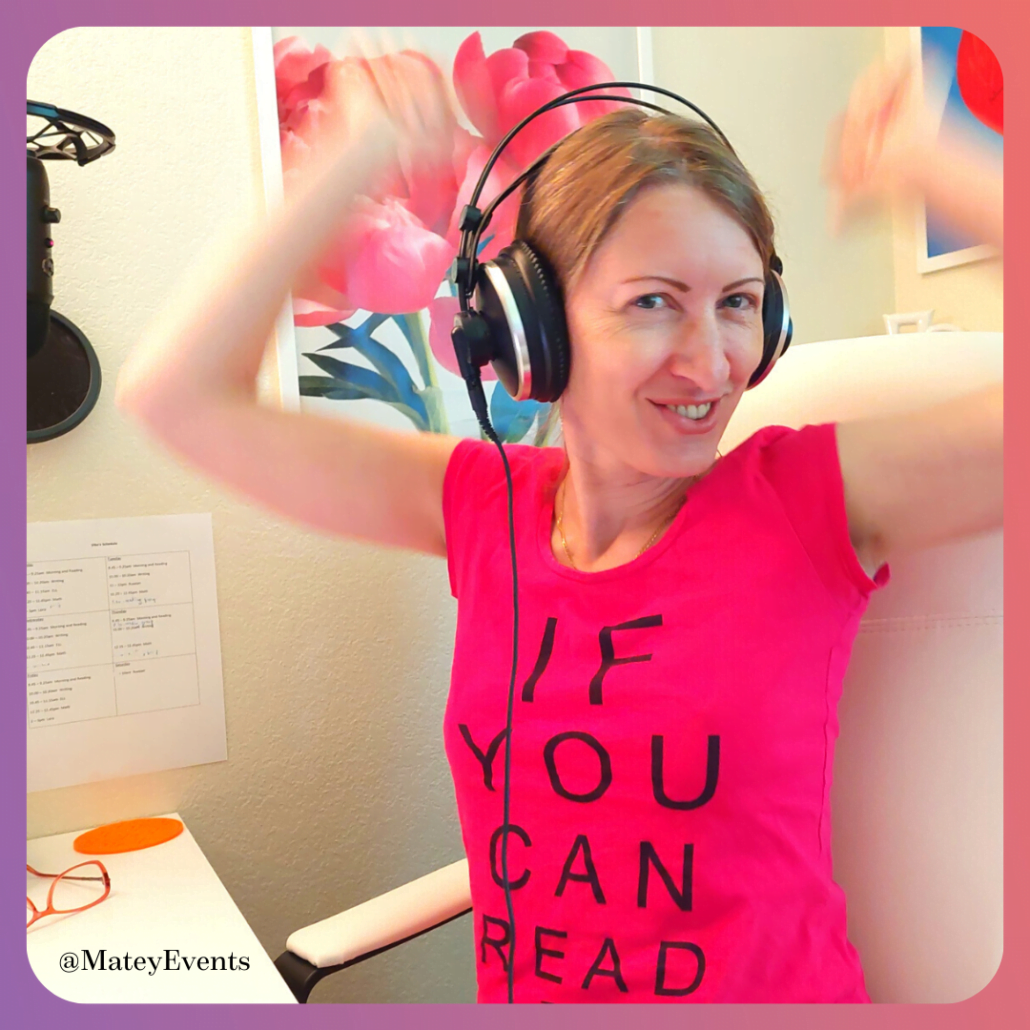
The Anatomy of a (Effective) Pre-event Email
Event planners are now paying (long overdue) attention to the pre- and post-event stages. There are many things to review in those stages, and here is one I want to discuss today: what should go in your pre-event email.
To start the event on the right foot, you should scrutinize your pre-event communications. The guys from GreenBook Events emailed me with an IIEX Behavior reminder, and I thought it was an excellent example of a thoughtful pre-event message. Let’s dissect it.
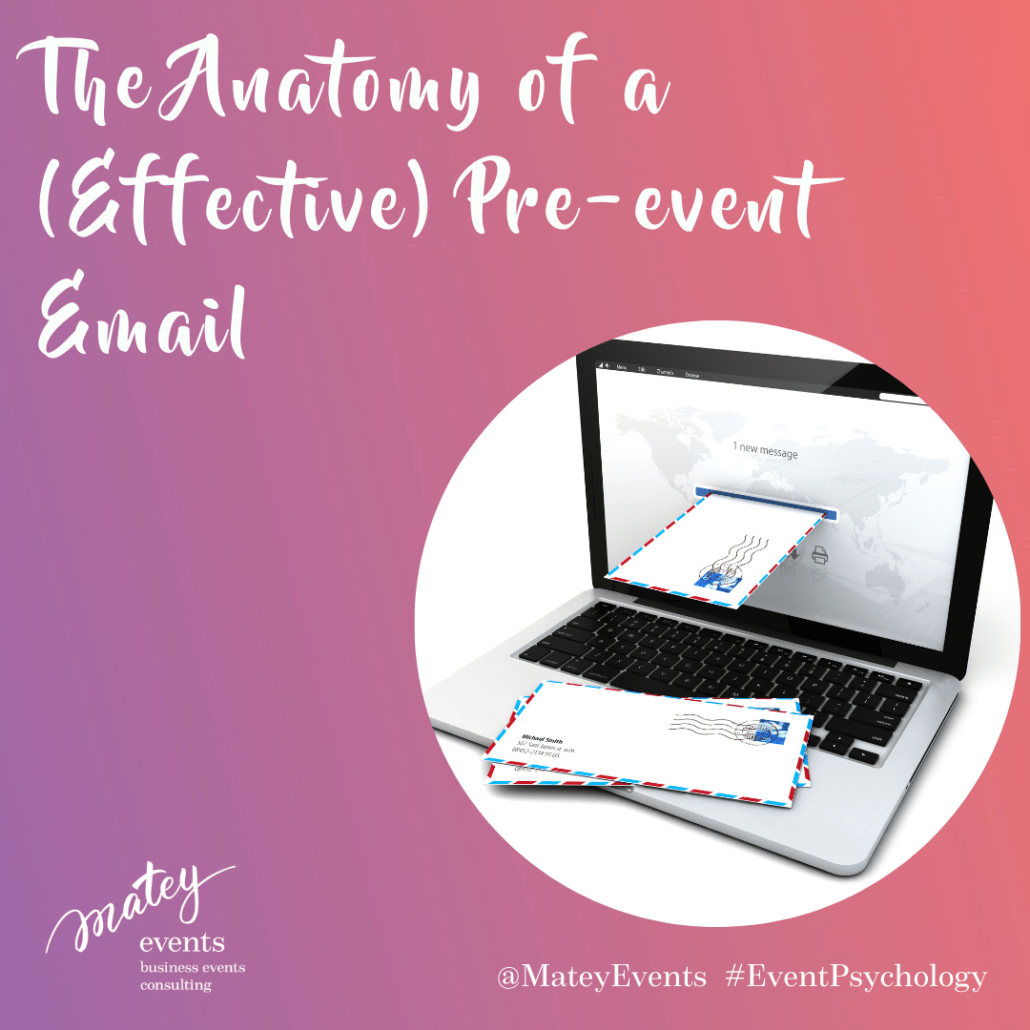
5+ Event Design Lessons for Better Engagement from Nudgestock 2021
In the very first episode of Nudgestock 2021 Rory Sutherland makes one important remark: ‘The best ideas nowadays don’t emerge within disciplines – they emerge at the intersections between them’.
I cannot agree more. Event Psychology that I focus on, suggests just that. It lies at the intersection between creating events for people and with people, and studying people’s behavior to provide them with best experience. When event planning and psychology meet, you’ll have the most innovative ideas for increasing attendee engagement, facilitating growth, and creating meaningful experiences.
In that first session Rory makes a great point discussing if everything is BS (behavioral science, and what did you think??). He says, no, one should not think BS is the only solution in every case. But –
“If you don’t use BS to expand the potential solution space to a problem, by adding a psychological dimension to the problem, in addition to other aspects or metrics you’re considering, then you’re missing out on a huge opportunity”.
Rory Sutherland / Nudgestock 2021
In other words, the best solution should almost always involve psychology. This statement really resonates with me. What I argue in context of events is exactly that: Event Psychology is not a tool that magically solves all of your event planning problems. Yet, it is an effective tool that can simplify many aspects of the event planner’s job, and improve the quality of events without requiring a huge investment.
Rory provides one terrific example. The engineers have created solar panels, a major achievement and great solution, but the problem of getting people to adopt solar panels has not been solved (and cannot be solved without an understanding of how people make decisions). In the events language: you might have figured out the best safety measures for your in-person event. Or, you might have gone above and beyond with various activities to boost engagement at your virtual event. But have you thought about how you are going to make people follow your safety rules or use the features you intended for better engagement?
On to more Nudgestock takeaways specifically for eventprofs ⬇️
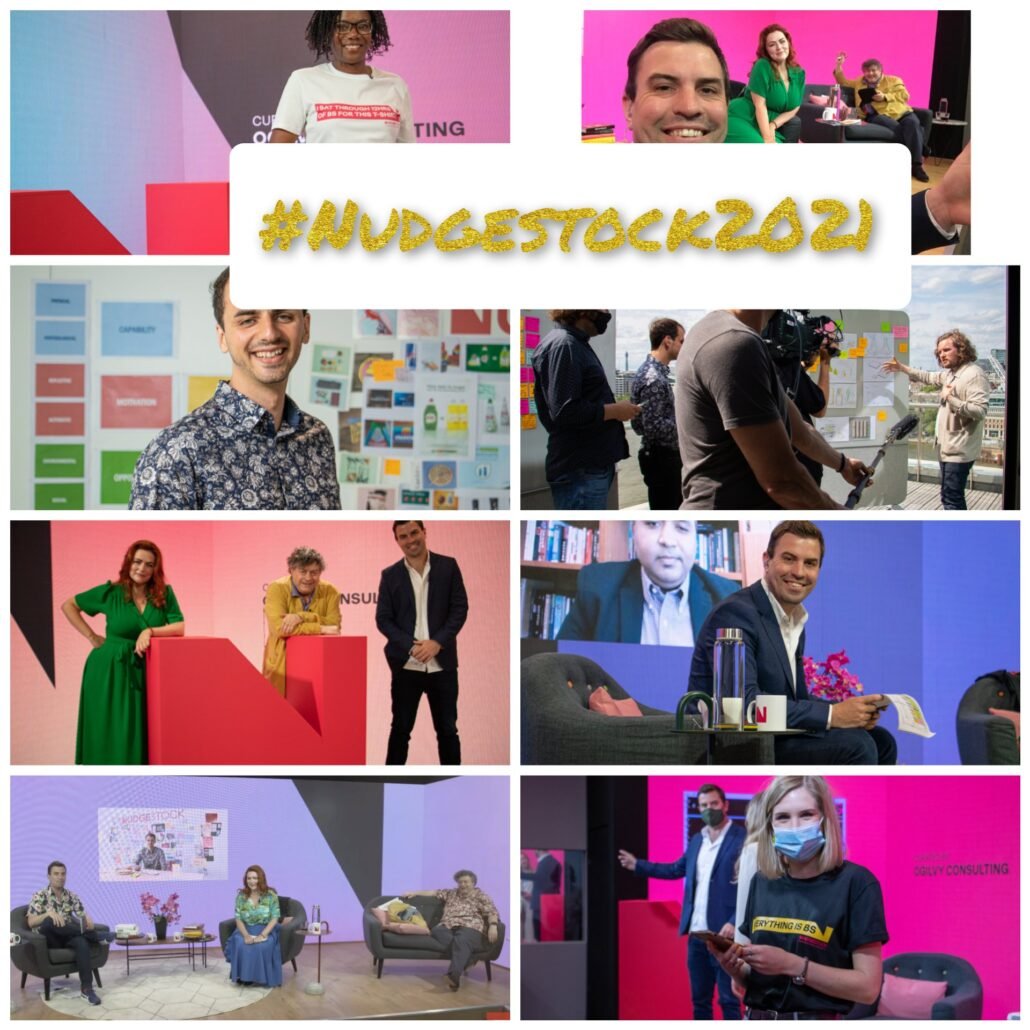
Event Psychology Club
Online Course
What my clients and partners say
What If I Told You..? Event Psychology podcast
2018 ChangeMaker

Victoria Matey has been chosen as 2018 ChangeMaker by MeetingsNet
Top 100 Smart Women in Meetings

Victoria Matey has been named to the Top100 Smart Women in Meetings 2018.
Recent Posts
- Featured In
- Less talk. More experiments, please.
- 3 science-backed tips for effective event networking
- Why being imperfect can make your events thrive
- How to eliminate uncertainty and make the future of events bright(er)
- Event Analytics: How Can You Measure Emotions?
- The Anatomy of a (Effective) Pre-event Email
- 5+ Event Design Lessons for Better Engagement from Nudgestock 2021
- Science-backed tips to fight zoom fatigue at events
- 6 Behavioral Science Books Every Event Planner Should Read
Archives
Recent publications
- Featured In 20.11.2023
- Less talk. More experiments, please. 28.06.2022
- 3 science-backed tips for effective event networking 06.06.2022
- Why being imperfect can make your events thrive 21.12.2021
- How to eliminate uncertainty and make the future of events bright(er) 16.09.2021

